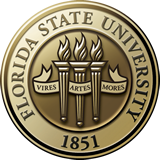NSF CAREER Workshop
Workshop Overview
This workshop sponsored by the Vice President for Research and the Office of Proposal Development offers a unique opportunity to learn about all aspects of the NSF CAREER program.
The workshop will have a discussion of requirements, timelines and other important information. Additionally, CAREER awardees will be participating throughout the workshop, and will be available for discussions.
Workshop Details
When: February 22, 2017 (3:00-6:00 PM)
Where: CAPS Seminar Room, 2000 Levy Ave., Tallahassee, FSU Southwest Campus
Presenters Include:
Ross Ellington, Associate Vice President for Research
Beth Hodges, Director, Office of Proposal Development
Mike Mitchell, Proposal Development Coordinator
Billy Oates, Associate Professor, Dept of Mechanical Engineering, CAREER Awardee 2011
Christian Bleiholder, Assistant Professor, Dept of Chemistry, CAREER Awardee 2017
Jonathan Clark, Associate Professor, Dept of Mechanical Engineering, CAREER Awardee 2014
Ken Knappenberger, Associate Professor, Department of Chemistry, CAREER Awardee 2012
Register
Contact
Please contact Beth Hodges (bhodges@fsu.edu) with any questions.
More About NSF CAREER
What is the NSF CAREER Program?
CAREER is a premier program emphasizing the importance the Foundation places on the early development of academic careers dedicated to stimulating the discovery process in which the excitement of research is enhanced by inspired teaching and enthusiastic learning. Effective integration of research and education generates a synergy in which the process of discovery stimulates learning, and assures that the findings and methods of research and education are quickly and effectively communicated in a broader context and to a larger audience.
The CAREER program embodies NSF’s commitment to encourage faculty and academic institutions to value and support the integration of research and education. Successful PIs will propose creative, integrative and effective research and education plans, developed within the context of the mission, goals, and resources of their organizations, while building a firm foundation for a lifetime of contributions to research, education and their integration.
Integration of Research and Education - All CAREER proposals must have an integrated research and education plan at their core. NSF recognizes that there is no single approach to an integrated research and education plan, but encourages all applicants to think creatively about how their research will impact their education goals and, conversely, how their education activities will feed back into their research. These plans should reflect both the proposer's own disciplinary and educational interests and goals, as well as the needs and context of his or her organization. Because there may be different expectations within different disciplinary fields and/or different organizations, a wide range of research and education activities may be appropriate for the CAREER program. Proposers are encouraged to communicate with the CAREER contact or cognizant Program Officer in the Division closest to their area of research to discuss the expectations and approaches that are most appropriate for that area (see http://www.nsf.gov/crssprgm/career/contacts.jsp for a list of CAREER contacts by division).
All proposals submitted to the National Science Foundation are evaluated through the use of two merit review criteria, which they must address explicitly in the Project Summary and Project Description. One relates to intellectual merit and the other relates to broader impacts of the activities. The following URL contains examples illustrating activities that are likely to demonstrate the broader impacts: http://www.nsf.gov/pubs/gpg/broaderimpacts.pdf. CAREER proposers may find these examples useful as they develop their proposals.
